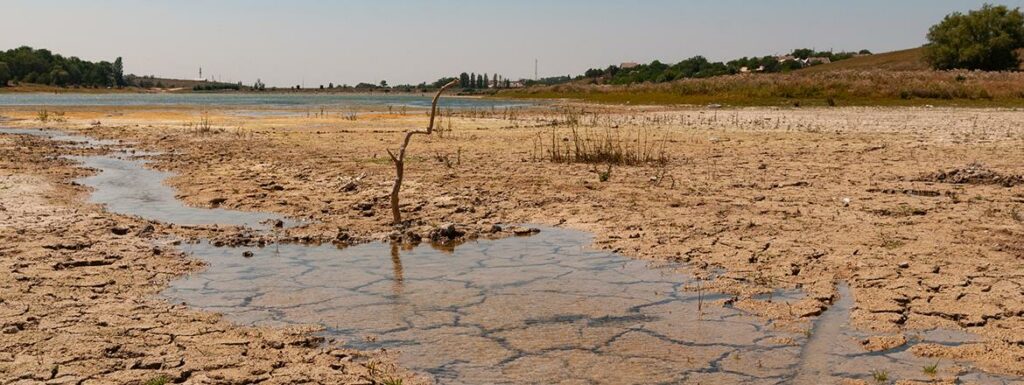Another reverberation from the echo chamber, in this case The Conversation, whines “In the face of chaos, why are we so nonchalant about climate change?” Why indeed? Even with dinosaurs hectoring us and dehydrated beer fighting drought, we just act like we didn’t actually notice the apocalypse our betters are telling us is literally at our door. How stupid are we? Well, the Conversation piece began “The dire state of the planet’s health was unambiguously demonstrated by the UN’s climate body, the IPCC, when it sounded a ‘code red’ for humanity in its latest report.” So there’s your answer. We’re nonchalant because we know the report said nothing of the kind, an activist just made it up and other activists liked the sound of it and repeated it. Also because it was so detached from reality, in which the planet is not on fire or any of that stuff.
The author of the Conversation item, a “Research Fellow in Politics and International Studies, University of Warwick”, also wonders why “peaceful protest by environmentalist groups like Extinction Rebellion tends to be opposed more than it’s supported.” Again, we know. It’s because their protests are not peaceful and when people call violence peace they bring predictable and well-earned discredit on themselves and their cause.
Extinction Rebellion breaks laws and disrupts lives. On purpose. Again and again. But but but, author Tom Pettinger says, the public is hostile “despite the limited disruption these groups cause in comparison to the extreme disruption already produced and threatened by climate breakdown, such as extreme droughts, wildfires and tropical storms.” No, no and no. The disruptions are costly and maddening. The perils are imaginary: see what the experts say on extreme droughts, wildfires and tropical storms. And even if real, nothing Extinction Rebellion is doing would alleviate the threats.
Pettinger continues: “Recent protests blocking British motorways to call for the government to insulate homes have been met not with policy reform but with outrage and proposals to increase police power to arrest protesters.” Yeah, and if someone blockaded your house would you give in to their demands, or call the cops?
Ah but he is better than we twisted dolts. “I believe that ‘affect theory’ – a concept from political science that connects emotion and experience with political action – can help us make sense of the gap between our knowledge and what we do with that knowledge. And I think that the lack of widespread mobilisation is borne, not from outright climate denial, but rather from a more insidious climate apathy: what might be called ‘climate nonchalance’.”
To nobody’s surprise, in WokeWorld everything is secretly bigotry. “This nonchalance – recognising the impending collapse of our world and shrugging our shoulders – is made possible only by a profound separation between the comfortable lifestyles of the privileged and the consequences of those lifestyles elsewhere: including increased death rates, frequent exploitation and environmental displacement for the less privileged.”
Eventually Pettinger admits that the people he’s berating aren’t convinced by the climate breakdown rhetoric because they’re not experiencing climate breakdown. “The vast majority of UK citizens, for example, have not yet been displaced by drought, flooding or other extreme weather events.” Unlike say Bangladesh, where he firmly asserts that… um… they haven’t either. “Yet this is a position not equally enjoyed across the world. The population of Bangladesh, for instance, is particularly vulnerable to climate change, with 30 million people set to become climate refugees if and when sea levels rise by one metre.”
Set to become climate refugees isn’t the same thing as being climate refugees. For one thing, you didn’t have to flee. Which is kind of important to the story. Just like not having been displaced by drought, flooding or other extreme weather events.
If you have the right sort of PhD, you then intone that “Affect theory suggests that we are spurred into action when we personally experience the effects of something.” Not sure that needs a fancy name, it’s usually called responding to circumstance, as opposed to responding to non-existent disasters that have been threatened for decades but never show up. So excuse us if we hicks just say “We’ll believe it when we see it”.



I used to love hating "The Conversation". I subscribed to it and, though it was free, I had to stop. Didn't enjoy being irritated quite so frequently. It follows a standard "script" and the article discussed here is a good example. A brief description of the "situation", a few paragraphs of light shaming and finger-wagging, gross exaggerations, and not-so-subtle implications that most of us are idiots. Followed usually by a cutesy theory or two explaining our idiocy. Top it off with a light prescriptive statement ("We must move from nonchalance to action if we are to protect both our planet and those already living with the consequences of a collapsing world.") and it's done. I think it's a place where aspiring academics can unload their burdened brains without the need for peer review. Or something. Anyway, an occasional dose of it reminds me how many of our so-called academics seem lost in a world of their own minds. And don't really seem to have much of a clue about anything else.